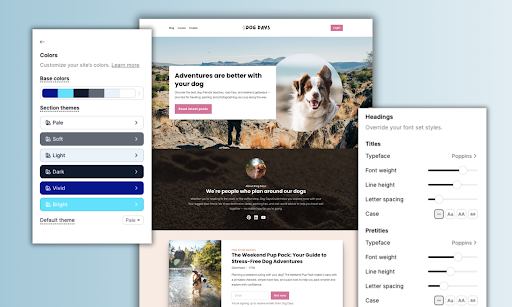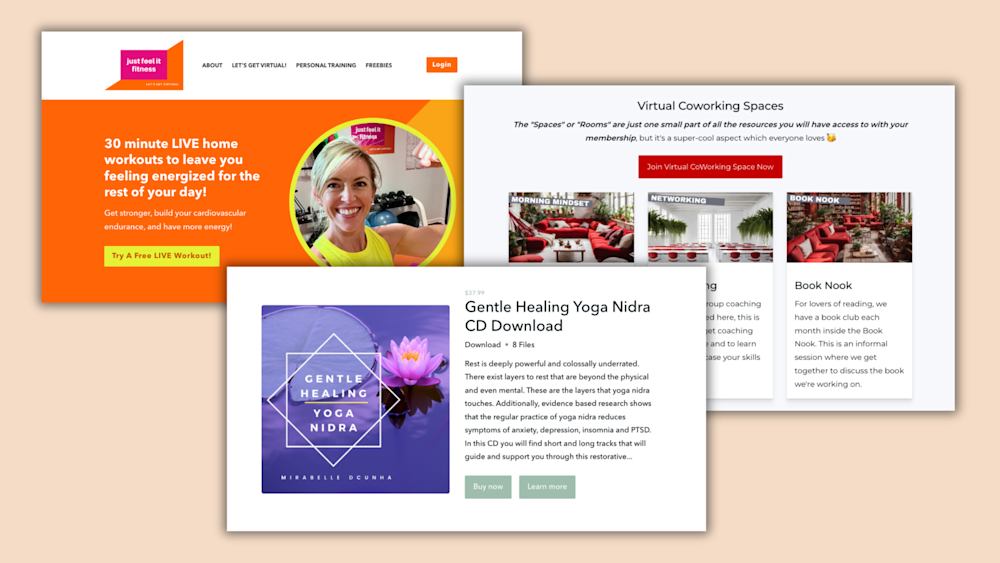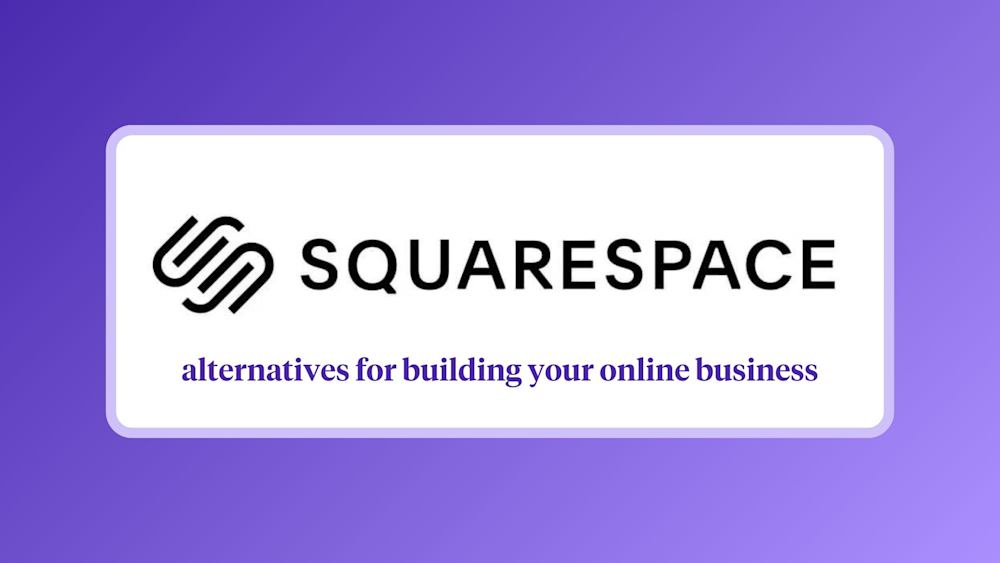Starting your own business and being your own boss is an exciting idea, especially if you're trying to escape the grind of your 9-to-5.
But it can also be scary and nerve-wracking. There are a lot of unknowns -- and a lot of startup gurus out there with guides that promise startup success for the low price of $999.99.
Here's the thing: There's no exact formula for starting a successful business for the first time. But by asking yourself these five questions -- and being honest with your answers -- you can set yourself up for success.
-
Am I ready to make a lifestyle change?
-
What product or service should I sell?
-
Who is my target audience?
-
What type of business should I start?
-
How much money do I need to launch?
Let’s dig in.
#1: Am I ready to make a lifestyle change?
No matter what your business idea is, starting your own business will change your life.
That change can be amazing. You're your own boss, working on something you're passionate about, creating products that solve problems. That's what makes entrepreneurship so exciting -- and why so many people choose to start a small business:
But that change can also be hard. Being a successful business owner means wearing many hats: The average small business owner is responsible for 4.2 roles, which is probably why the top characteristic for running a successful small business is self-discipline.
And often, becoming a successful business owner means making sacrifices, like less time for recreation or with family and friends.
But if you take anything away from this article, let it be this: You don't need to sacrifice your well-being to be a successful entrepreneur. And you don't need to embrace the "no days off" mentality.
When you take care of yourself and avoid entrepreneurial burnout, you're more likely to succeed. That's why self-care for entrepreneurs is so important. You're putting a lot of time and (potentially) a lot of money into your new business. Make your lifestyle change sustainable by taking care of yourself.
If you feel ready to make that lifestyle change -- and to practice self-care along the way -- it's time to decide what product your new business will sell.
#2: What product or service should I sell?
If you're not sure what kind of business you want to start, consider selling digital products and services.
The creator economy is growing fast. At Podia, we’ve been seeing more and more formerly offline workers taking their business online.
Creators are joining the creator economy and earning their first “online dollar” by the millions.
They’re doing it by selling profitable digital products such as online courses, digital downloads, webinars, and membership sites.
Digital products are also more scalable than physical goods. You have lower startup costs because you don't need to rent a physical office space, commute, or secure inventory space.
This scalability also makes digital products a great option for passive income. Once you create your digital download, you've put in the same amount of resources to create and store your product whether you sell one copy or one million.
Take Reuven Lerner, for example. Reuven turned his industry expertise as a software engineer and educator into a sustainable solopreneur business. Selling online courses lets Reuven scale a small business single-handedly and sustainably.
Like Reuven, you want to sell a digital product or service that combines your expertise and interests with your potential customers' needs and pain points.
To figure out where those two criteria intersect, plot your product ideas on the Passion/Profit Matrix:
The Passion/Profit Matrix helps you judge your digital product ideas based on two factors:
-
Passion: How excited are you to work on this? If you hate working on something, its profit potential doesn’t matter, because you’re more likely to quit before you get there.
-
Profit potential: Does your product solve a problem that people would pay to have solved for them? Do people already spend money to solve this problem?
The Passion/Profit matrix also helps you figure out your unique selling proposition (USP). Your USP answers two questions:
-
What problem am I solving with my product or service?
-
What makes my product different from my competitors?
Your USP is your "special sauce". It's what sets you apart from the competition and makes potential customers choose you.
It also helps you figure out your marketing strategy. When you know what makes your product special, you can highlight that in your messaging.
Enter: Your product-market fit.
Your product-market fit is how well your product meets customer demand.
Philip Krim founded Casper when he saw there were only two major mattress brands on the market and that there were significant opportunities for innovation and disruption.
Sara Blakely got her idea for Spanx control-top undergarments when she couldn’t find anything flattering or comfortable to wear under white pants.
To learn even more about what your audience wants, you need to get to know them. And to do that, you have to know who they are. Which brings us to question number three . . .
#3: Who is my target audience?
You can't market your products if you don't know who you're marketing to. That's why it's so important to figure out your target market before you launch your new business.
Your target market is the group of potential customers you plan to sell your products or services to. Once you know your USP and product-market fit, you probably have a solid high-level idea of your target market.
But how well do you know your potential customers as people, not just demographics?
That's where buyer personas come in.
Content marketing consultant Amy Wright explains: “Buyer personas describe who your ideal customers are, what their days are like, the challenges they face, and how they make decisions."
A full buyer persona might look like this example of one of Spotify's target customers:
To build your buyer persona, it's time to do some customer research.
Two of our favorite customer research techniques are reading reviews and running surveys.
Use Google or Amazon to find other products within your niche, then read the reviews. Product reviews offer qualitative insights into your audience.
Plus, they’re an easy way to start validating your product idea.
Let's say you want to sell an ebook on making homemade pasta for beginners. You could hop onto Amazon and read the reviews of books that promise to solve that same problem, like Homemade Pasta Made Simple:
From these reviews, you learn that beginner at-home pasta chefs want more pictures -- visual cues help them better understand pasta-making -- and you can use this info in your product and marketing.
Surveys, on the other hand, help collect valuable customer data and feedback in one place.
Here are some benefits of surveying your target audience:
-
They provide insights that no other form of research can.
-
Surveys help you measure the market need for your product.
Once you gather as much customer info as you can through your research, it's time to build your ideal customer's buyer persona.
Your buyer persona should include info like:
-
Age range
-
Income range
-
Level of education
-
Geographic location
-
Interests and hobbies
-
Social media platforms they use
-
Other businesses they've purchased from
-
What they like or dislike about your competitors
Now, with your buyer persona filled out and your product idea ready to go, you're ready to get into the nitty-gritty details of launching your startup.
#4: What type of business should I start?
It's not the most glamorous part of being your own boss, but you need to figure out the legal details of starting your business before you launch.
First, figure out what type of business you plan to register. In the U.S., the IRS lists six main business types to choose from:
-
Sole proprietorship
-
Limited liability corporation (LLC)
-
Corporation
-
Partnership
-
S corporation
-
International business
Each business structure has different financial and tax implications, which you can learn more about in this guide to the legal and tax requirements for starting a small business.
For now, let's talk about the two most popular business types for small businesses: Sole proprietorships and LLCs.
Sole proprietorships make up 73% of all businesses in the U.S. When you have a sole proprietorship, you are your business.
You're entitled to all of your profits -- but you're also personally responsible for all of your business debts, losses, and liabilities. You also have to pay personal income tax on profits earned.
When you incorporate your business as an LLC, you create a separate legal entity for your business. That's where the "limited liability" piece comes in: you're not personally liable if your business runs into debt or lawsuits.
LLCs require you to register your business name and prepare and file your Articles of Incorporation with your Secretary of State.
So how do you know if you should incorporate your business?
Business lawyer Keren de Zwart says: “There’s no hard and fast rule, but if your business is netting at least $60K in profits, that’s usually a good time to formalize into an LLC or corporation because the tax benefits can really start to be utilized then."
You also need to decide whether you want to pursue your business as a side-hustle or full-time. A side-hustle means that your business is part-time work that you do outside of your "regular" job. Side-hustles are a popular and profitable way for creators to monetize their passions.
When you're just starting out, it usually makes sense to begin with a side-hustle, at least for the short term. After the first year, once you get your feet under you, you can decide whether it makes sense to become a full-time entrepreneur.
If you decide to incorporate your business or go full-time right off the bat, it's extra-important to put together a business plan. A detailed business plan can help you get buy-in from investors, apply for bank loans, and set yourself up for success as a business owner.
Your business plan should include your:
-
Customer, competitor, and industry research
-
Business model
-
Projected monthly cash flow and expenses
-
Financial statements
-
Anticipated profits
-
Marketing strategy
-
Any other info on how you plan to grow and scale your business
(Learn how to put together a business plan in this article on how to start an online business.)
Speaking of cash flow, let's move on to our final question: How much money do you need to start a business?
#5: How much money do I need to launch?
It doesn't have to cost an arm and a leg to start a business.
There's no go-to figure that answers, "How much does it cost to start a business?"
Instead, I'll give you the realistic (but most frustrating) answer: It depends.
You need to figure out your startup costs, how you plan to price your digital products, and what your business budget will be.
Some of your main budget items might include:
-
Registering a business name
-
A website host and domain name
-
Live chat software
-
An email marketing platform
-
Somewhere to host your digital products
-
Marketplace listing fees
-
Website design services
One way to cut down on startup costs is to sell your products on your own site to save money (and eliminate some of those budget items).
When you build your site and sell your digital products on an all-in-one platform like Podia, you can avoid marketplace fees and access everything you need to host, market, and sell your digital products in one place.
Instead of budgeting for and trying to manage a ton of different platforms, you pay one flat fee for:
-
Email capture and email marketing tools
-
Messaging for live chat
-
Selling tools such as coupons, upsells, affiliates, and more
-
Fast and secure payment processing
-
Online courses and student management
-
Complete sales funnels
Don't just take my word for it, though. Try Podia out for free for 30 days.
Or take the word of Minessa Konecky, the founder of six-figure coaching business Direct to Success, who saves $5,000 annually with Podia. Minessa went from using three additional tools and hiring a programmer to using one platform for managing most of her online business.
Switching to Podia helped Minessa cut out costs for:
-
$1,188 for AccessAlly
-
$3,000 for hiring a programmer to help with AccessAlly and wire together her quiz funnel
-
$747 for WebinarJam
-
$468 for Leadpages
Podia also helps you save money by offering unlimited products. If you sell a wide range of digital products, like Joy Cho’s Oh Joy! Academy, you can publish all of your digital products without worrying about a cap on products or customers.
Once you have your budget and choose the right tools, you're well on your way to figuring out your startup costs. For even more info on calculating your expenses -- plus tips on opening a business bank account -- check out step four of this guide to starting an online business.
For now, let's wrap this up, so you can get back to the principal question at hand: Are you ready to start your own business?
Answer these questions before starting a small business
Starting a business is scary, exciting, and empowering all at once. It can also be incredibly rewarding, which is why so many people are changing their lives by becoming solopreneurs every day.
Before you launch your business, ask yourself these five questions:
-
Am I ready to change my lifestyle?
-
What product should I sell?
-
Who is my target audience?
-
What type of business should I start?
-
How much money do I need to get started?
When you answer these questions honestly, you set yourself up for success from day one.
And if you're looking for a way to make launching your business even easier, Podia has all the tools you need in one place. Try Podia free for 30 days. We can't wait to watch you succeed.



